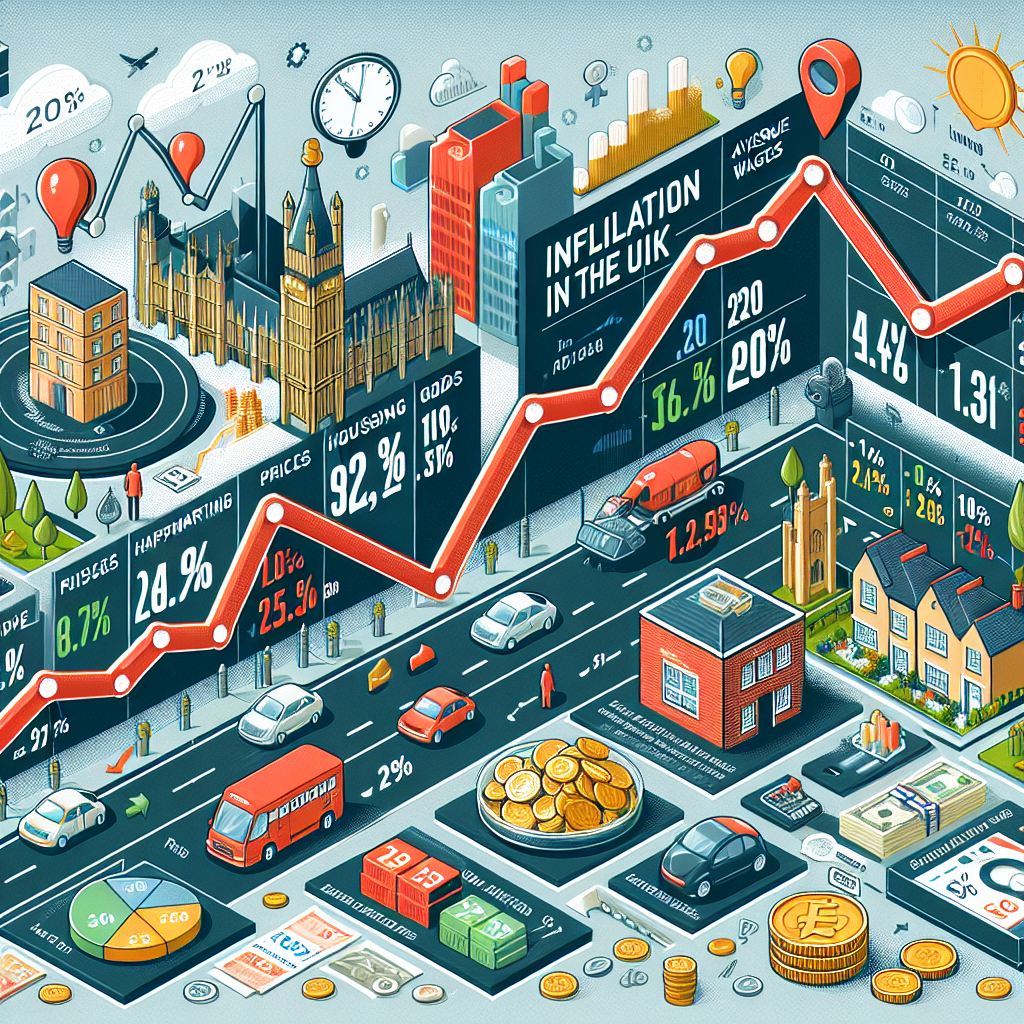Understanding Inflation in the UK: 2025 Insights
As we progress into 2025, the landscape of inflation in the UK is evolving rapidly, impacting various sectors of the economy and the daily lives of citizens. This comprehensive report aims to unpack the current inflation trends, their implications, and what individuals and businesses can do to navigate this challenging environment effectively.
Current Inflation Rate Overview
According to recent data from the Office for National Statistics (ONS), the inflation rate in the UK has reached a notable 5.1% in early 2025, marking a slight decrease from the previous year’s peak. This decline can be attributed to numerous factors, including adjustments in energy prices and supply chain improvements. However, the persistence of inflation remains of concern, particularly in essential sectors such as food and housing.
Key Drivers of Inflation
Several factors contribute to the current inflation scenario:
- Supply Chain Disruptions: While improvements have been noted, certain goods still face delays, impacting pricing structures.
- Energy Costs: Energy prices remain volatile due to global market fluctuations and geopolitical tensions.
- Wage Growth: With the tight labor market, wage growth is outpacing inflation in some sectors, affecting overall pricing strategies.
For a deeper analysis of these factors, refer to the ONS report here for more detailed insights.
Implications for Households and Businesses
The implications of sustained inflation are profound, affecting both consumers and businesses. For households, budget planning has become increasingly crucial as the cost of living continues to rise. Essential items such as groceries, utilities, and rent have seen significant price hikes, making it imperative for families to adjust their spending habits.
Strategies for Households
To navigate this challenging economic environment effectively, households can consider the following strategies:
- Budgeting: Track all monthly expenses to identify areas for potential savings, focusing on discretionary spending.
- Shopping Smart: Utilize discounts, loyalty programs, and bulk purchases to lessen the financial impact of rising prices.
Recommendations for Business Adaptation
Businesses similarly must adapt to these inflationary pressures. Companies should consider strategic pricing adjustments while being mindful of customer perceptions. It’s crucial to balance the need to maintain profit margins with the potential risk of alienating customers through price increases.
Business Strategies
Some recommendations for businesses include:
- Review Supply Chains: Optimize supply chains and establish long-term contracts with suppliers to mitigate rising costs.
- Engage in Dynamic Pricing: Implement dynamic pricing strategies that allow flexibility in response to changing costs without losing customer loyalty.
For further reading on business strategies during inflationary periods, check out our comprehensive guide here.
Social Media Updates
Facebook Post
🔍 Inflation in the UK: What You Need to Know for 2025
As inflation hovers around 5.1%, understanding its implications is crucial for your finances! Check out our latest report that covers trends, household strategies, and business recommendations to better navigate this economic landscape! Read Now
Twitter Update
🚨 Inflation Update: UK sits at 5.1% in 2025. Dive into our analysis on current trends & strategies for households and businesses to cope! 📈 Discover More
LinkedIn Post
📊 2025 brings new inflation challenges in the UK, currently at 5.1%. Our latest insights detail key drivers and actionable strategies for both consumers and businesses to adapt. Equip yourself to face the rising costs! Learn More
By providing these clear, structured insights, we not only enhance our brand’s credibility but also empower our audience to make informed decisions in navigating inflation challenges ahead.
